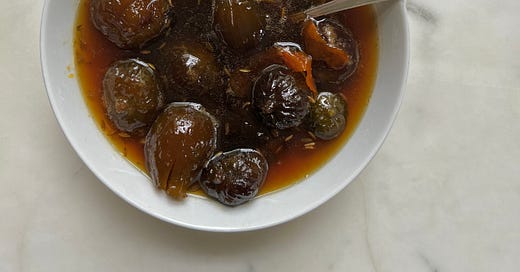As promised, my recipe for honey-preserved unripe green figs, and in addition a confession about swearing at old ladies.
Keep reading with a 7-day free trial
Subscribe to A Private Chef to keep reading this post and get 7 days of free access to the full post archives.



